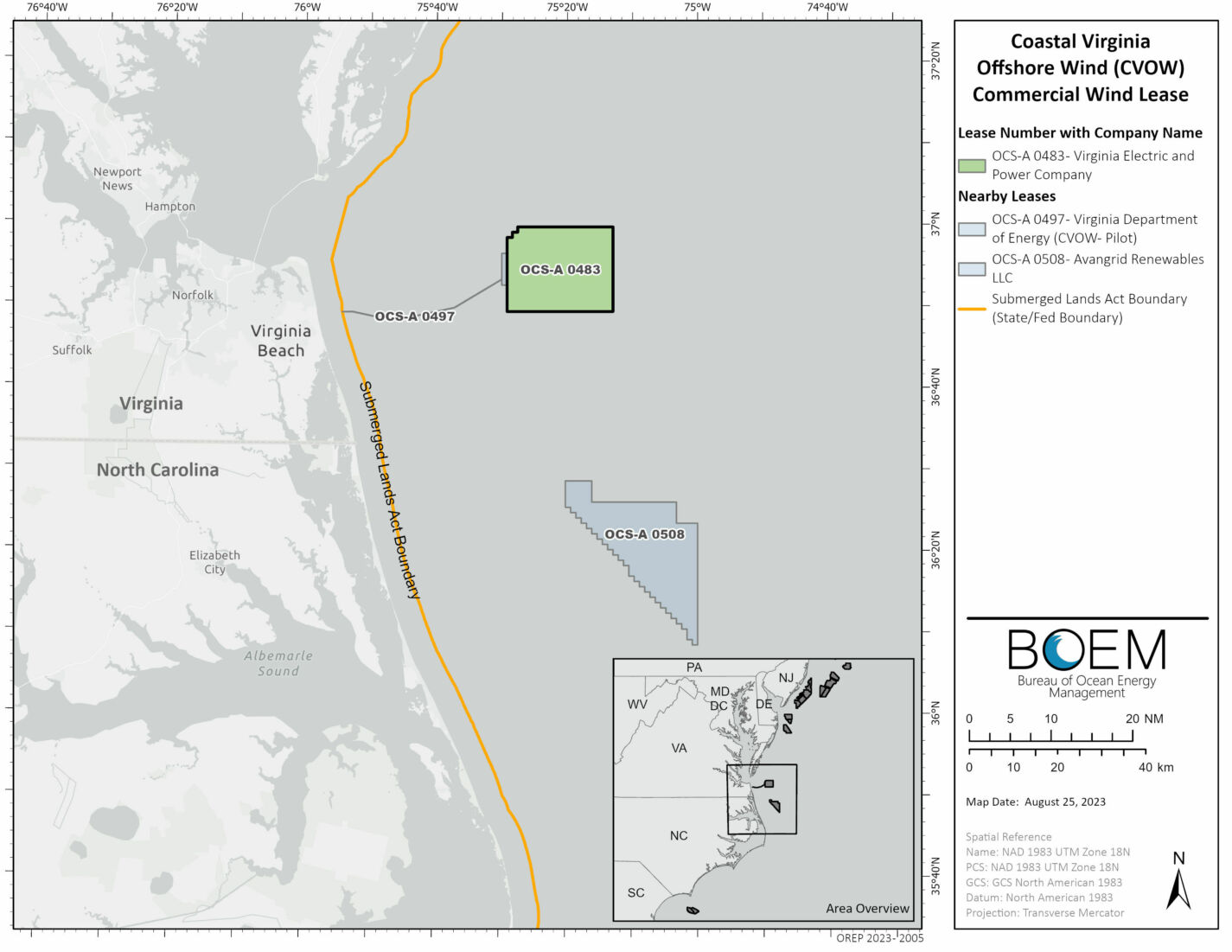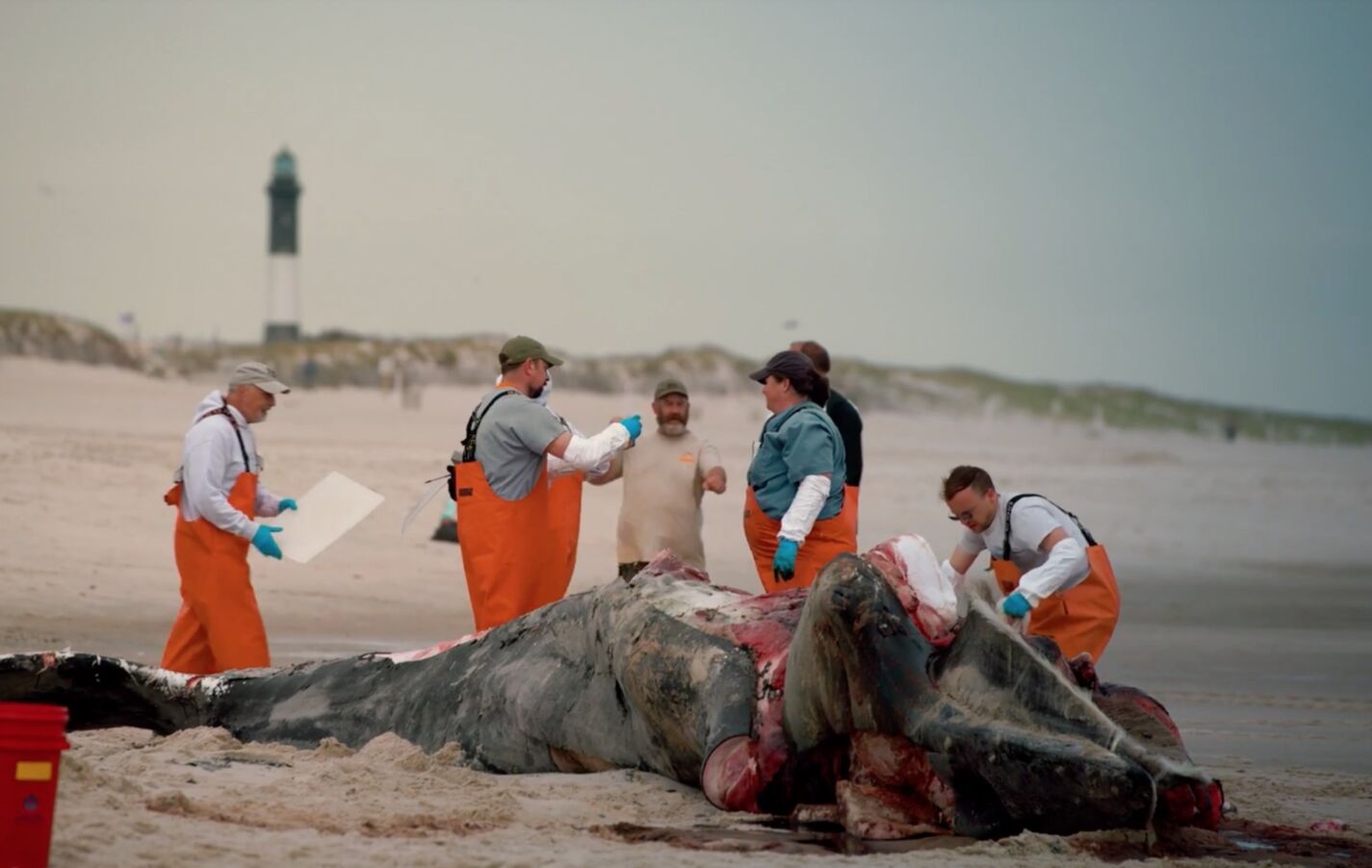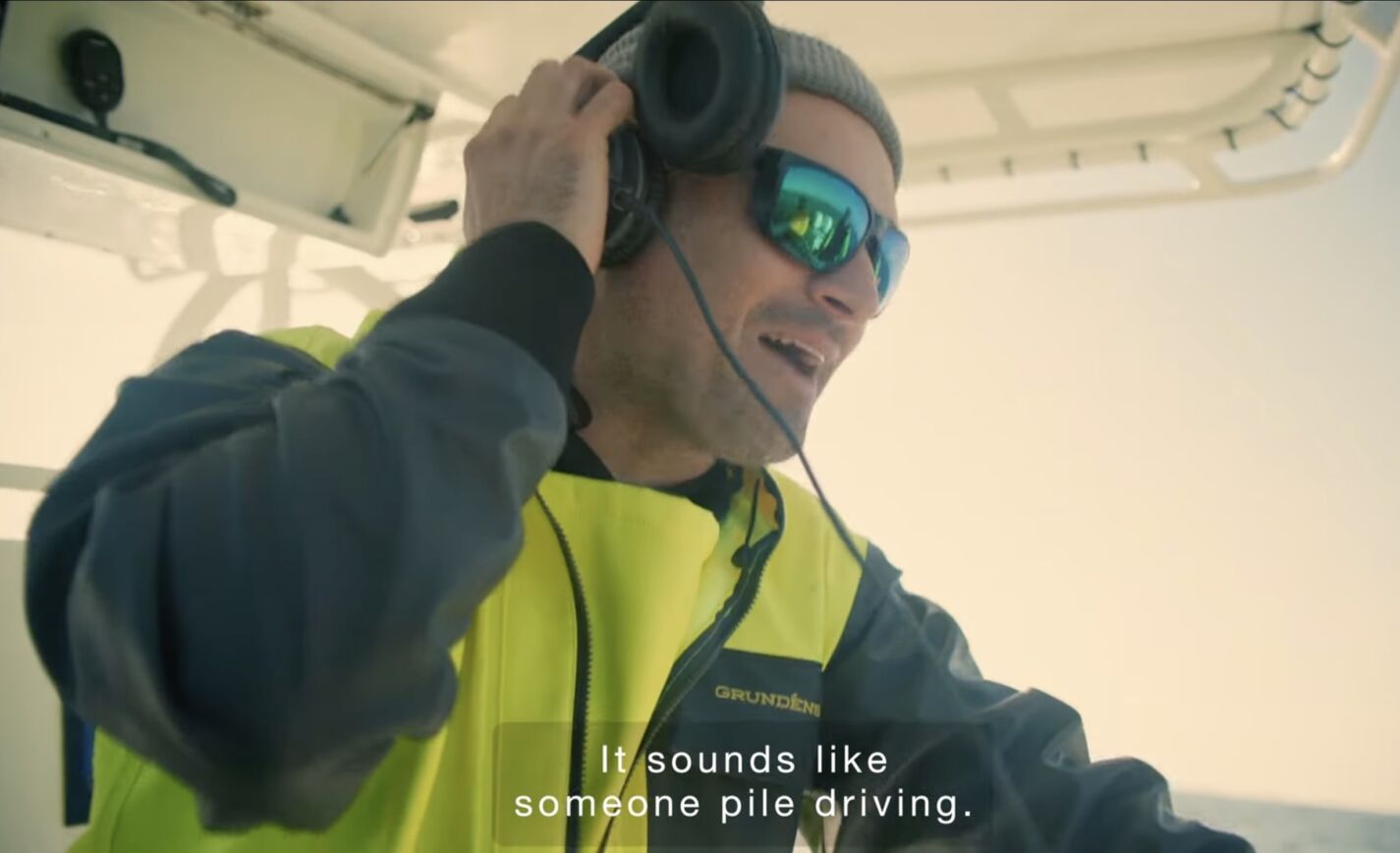- From Corolla, North Carolina, to Virginia Beach, Virginia, three dead whales washed ashore in three days in early March
- Investigations and studies from environmentalists, whale conservationists, and concerned citizens argued that offshore wind development activities were the likely reason for the spike in whale deaths along the U.S. East Coast
- The Biden administration and the media have been adamant that offshore wind energy development activities cannot be responsible, postulating instead that the culprit is “climate change”
In three days, three dead whales have washed ashore on the Outer Banks and Virginia Beach.
The Virginian-Pilot reported on March 5 that two dead humpback whales had washed ashore on Virginia Beach. Officials told the paper that there was “no reason to suspect there’s a connection between the two whales’ deaths, though there hasn’t been an official conclusion made on this point.”
Later that day, WKTR News reported on a third dead whale, a minke whale that washed ashore on the Outer Banks outside Corolla. Officials say it is too early to tell if there is a connection between this whale’s death and the other two.
Coincidentally, the whales washed up on beaches near the Kitty Hawk Wind Energy Area and the Coastal Virginia Offshore Wind (CVOW) project.
Map Showing the Coastal Virginia Offshore Wind Project and the Kitty Hawk Wind Energy Area

Source: U.S. Bureau of Ocean Energy Management
The Recent Spate of Whale Deaths Off the U.S East Coast
The three whale deaths are unfortunately consistent with the staggering number of whales having washed ashore on East Coast beaches in recent months. By mid-August of last year, 60 dead whales had washed ashore.
Most whale deaths stay out at sea and aren’t noticed, however. The National Oceanic and Atmospheric Administration (NOAA) Fisheries division estimated that “only one third of North Atlantic right whale mortalities are actually detected.” Since 2016–17, minke whales and endangered humpback whales have been considered by NOAA Fisheries to be experiencing Unusual Mortality Events.

Environmentalists, whale conservationists, and concerned coastal residents living near planned offshore wind facilities have been warning about the spike in whale deaths. For example:
- An investigation showed that the only change in the areas suddenly witnessing dramatic increases in whale deaths was the Biden administration granting “Incidental Harassment Authorizations” to the offshore wind industry to “harass” endangered whales.
- An acoustical study from the Save Right Whales Coalition (SRWC) found the offshore wind exploration activities were using sonar levels much louder and much more frequent than permitted.
- A report from Save Long Beach Island argued that offshore wind energy vessel surveys were responsible for the recent spike in whale and dolphin deaths off the coast of New Jersey. The report showed that (among other things) the time and place of whale deaths coincided with survey vessel presence, the elevated noise range and number of animals affected were underestimated, the potential effects on whale behavior from those disturbances were not even addressed, and no other plausible cause of the whale deaths has been put forward.
What’s Killing the Whales?
That’s a question asked here last September — among many, many other places — regarding the spike in dead whales last year. Three whale deaths in three days near offshore wind development areas off the North Carolina and Virginia coasts are enough to ask again. The answers from government and aligned media have not been helpful:
According to the Biden administration and their sympathetic media, however, these are the likely causes of whale deaths:
1. Human interactions — vessel strikes and fishing gear entanglements
2. Not offshore wind energy development
3. Climate change
The Biden administration, the media, and the Cooper administration are invested in the political outcome of rushing offshore wind facilities off our beaches without regard to the consequences. Their narrative is that they’re helping a green energy source emerge to replace fossil fuels and make the planet cleaner, as if there were no cost too great that could derail such a fantasy. They even try to use whale deaths as justification for their efforts. They assert that, no, it’s not the noise and disruption from wind development activities driving whales into shipping lanes and causing fatal strikes and entanglements, but “climate change,” for which they also assert that the solution is offshore wind facility development.

The reality? Big international corporations given massive government subsidies appear to be creating devastating impacts for endangered whales and other marine life by far exceeding their permitted “takings” (the government euphemism for driving them to their deaths) — all for an industry that can never produce electricity on demand, will always need traditional energy sources to pick up their considerable slack, will be inordinately expensive to ratepayers and taxpayers, and even regarding “climate emissions” will never be able to offset the massive increases from the rest of the world, especially China and India.
There are major, major concerns regarding offshore wind facilities in North Carolina, as we have shown:
- Much higher electricity prices
- Significantly unreliable and intermittent electricity
- Worse energy poverty
- Irreparable devastation to North Atlantic right whales as well as to other critically endangered or threatened marine animals and avian species
- Harms to job creation and economic growth, especially in Eastern North Carolina
- Severe impacts on the coastal fishing industry
- Disruption of the other major coastal industry: beach tourism
- Compromised national defense and interference with military training and operations
- Severe interference with marine vessel radar, endangering mariners’ lives
- Uncertainty of the massive turbines being able to withstand storms in North Carolina’s uniquely hurricane-prone waters
- Serious and growing problems with disposing of “forever waste” from blades
- Inability to yield any measurable or palpable difference in climate change
Three dead whales in three days punctuate just one of those concerns.


